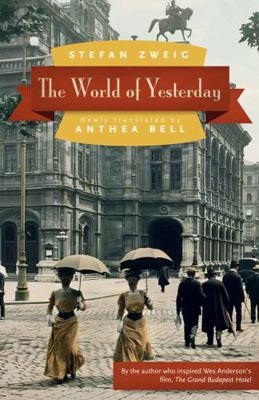
According to one online essayist, the Austrian writer Stefan Zweig was once “one of the most popular writers of the early 20th century all over the world, with translations into 3 languages.” Nowadays Zweig’s novels are little-known—though a recent resurgence of interest can be attributed in part to the release of Wes Anderson’s latest film, The Grand Budapest Hotel: Anderson claimed that his script had been inspired by Zweig’s body of work, which provided him (and provides us) with a window into the vanished world of the Austro-Hungarian Empire. The World of Yesterday (University of Nebraska Press) is Zweig’s autobiography, translated by Anthea Bell and written in the early 1940s while Zweig and his wife were living in exile, two of the many thousands of Jews whose way of life had been destroyed by the rise of the Nazis. It is indescribably poignant to read, in Zweig’s foreword, of the complete destruction of a world in which little had changed for generations, a world where Zweig’s father and grandfather could expect to—and did—live “one and the same life from beginning to end, without many vicissitudes, without upheaval and danger, a life of small tensions, imperceptible transitions, always lived in the same easy, comfortable rhythm as the wave of time carried them from the cradle to the grave.” Zweig came to feel that Europe, “the true home of my heart’s desire,” had become lost to him “after twice tearing itself suicidally to pieces in fratricidal wars.” His exile took him first to England, later to New York City, and ultimately to Rio de Janeiro, where, in February 1942, shortly after delivering the manuscript of this book to his publisher, Zweig and his wife committed suicide by taking an overdose of barbiturates.








